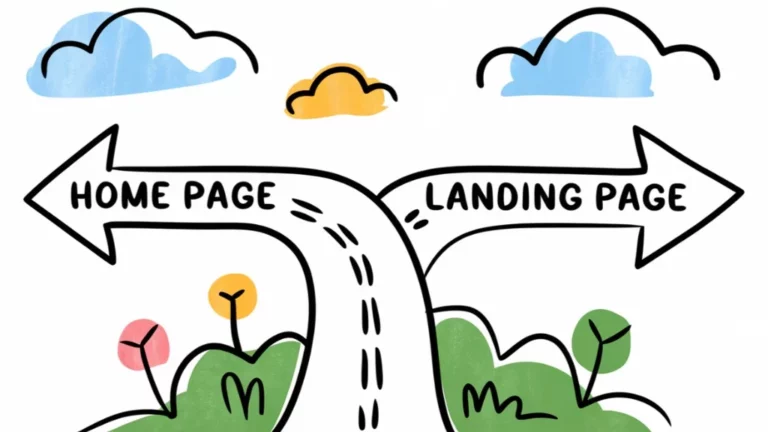Recent Google updates are causing significant disruption, primarily impacting content websites. The distress signals are loud and clear from those operating affiliate blogs, informational sites, and even larger content players. I've seen traffic plummeting by 70%, 80%, or even to near zero for these types of sites. The common thread seems to be content focused on generating traffic through informational articles and affiliate links.
While content websites appear to be bearing the brunt of the storm, business websites, particularly smaller ones or those relying on content marketing, can also be vulnerable. The key differentiator seems to be the nature of the content and the website's overall strategy.
Are Local Business Sites, Like Hairdressers, Getting Hit, or Is It Just Affiliate or Blog Sites?
The prevailing sentiment suggests that local business sites are largely weathering this storm, and in some cases, even seeing improvements. Local busineses, ranging from cleaning companies to tattoo shops, are experiencing increased rankings and traffic. This makes sense if we consider Google's focus on providing relevant results for local searches. A hairdresser's website, for example, is likely serving a specific, local need, and its content is less likely to be perceived as "spammy" or low-quality compared to a broad informational blog.
The sites getting hammered seem to be the ones heavily reliant on affiliate links and blog-style content, particularly if that content is perceived as thin, AI-generated, or lacking genuine expertise and authority. The distinction seems to be between sites fulfilling a clear local service need and those aiming for broad reach and monetization through affiliate marketing or advertising on informational content.
Why Are Content Sites Getting Whiped?
The core issue seems to be Google's evolving perception of value. Sites churning out large volumes of informational content, even if well-researched and not explicitly AI-generated, are being scrutinized. The argument is that this information is readily available elsewhere, potentially even directly within Google's AI overviews, diminishing the need for these intermediary websites. The feeling is that Google is prioritizing content from established authoritative sources or businesses directly offering products and services.
Where Is All the Lost Traffic Going?
This is the million-dollar question, and the answers seem to point towards a few key destinations. Firstly, Google's own ecosystem is likely absorbing a significant portion of the traffic. AI Overviews and featured snippets are designed to provide answers directly within the search results, reducing the need for users to click through to external websites.
Secondly, social media platforms like Facebook, TikTok, Reddit, Pinterest, and even Quora are the beneficiaries. The example of a high-ranking page vanishing from Google but its Facebook and Pinterest links appearing in the top 10 highlights this shift.
Finally, there's the possibility that traffic is consolidating among a smaller group of "authoritative" websites. The idea is that Google is identifying and prioritizing a select few websites in each niche, funneling the majority of the traffic to them. This makes it harder for smaller or newer sites to compete.
What's the Deal with Reddit Ranking So Well?
The prominence of Reddit in search results is a recurring and intriguing point. Many users are seeing their carefully crafted content de-listed while thin summaries and links on Reddit are ranking highly. This is particularly frustrating for those who invested significant time and effort into creating comprehensive, original content.
Several theories are floated: the upcoming Reddit IPO potentially influencing search algorithms, the value Google places on community-driven content, or even the perception of Reddit as a source of unfiltered, "real" opinions. Whatever the reason, it highlights a potential shift in how Google is evaluating content and the sources it deems valuable. The irony of AI-generated summaries on Reddit outranking human-created content isn't lost on anyone.
Is This the End of Informational Websites as We Know Them?
Google is actively devaluing websites that serve primarily as repositories of information, especially those monetized through ads and affiliate links. The reasoning is that AI can readily synthesize and present this information directly, rendering many such sites redundant.
There's a sense that the era of building niche websites, populating them with content, and passively earning income through Google rankings is coming to an end. The focus seems to be shifting towards businesses, authoritative voices, and unique, experience-driven content that AI cannot easily replicate. The future for informational sites might lie in specializing in extremely niche topics with low competition or pivoting to other traffic sources.
What About the Role of AI in All of This?
Artificial intelligence is a central theme in understanding these updates. There's a strong belief that Google is actively targeting AI-generated content, particularly low-quality, mass-produced articles. However, the frustration stems from the perception that the AI detection is inaccurate and is unfairly penalizing legitimate, human-written content.
What constitutes "quality" in the eyes of Google's algorithms? Many feel that their well-researched, original content is being unfairly lumped together with poorly written AI spam. The fear is that Google's efforts to combat AI-generated content are casting too wide a net, inadvertently harming genuine content creators. Conversely, there are observations that some AI-generated websites are still thriving, adding to the confusion and frustration.
Is SEO Still Relevant, or Is It a Waste of Time?
Despite the upheaval, the consensus is that SEO is not dead, but that it is evolving. The strategies that worked in the past may no longer be effective, and a new approach is required. The focus is shifting away from simply targeting keywords and towards building genuine authority, creating unique and valuable content, and potentially diversifying traffic sources beyond Google.
The emphasis on E-E-A-T (Experience, Expertise, Authoritativeness, Trustworthiness) is frequently mentioned, suggesting that Google is prioritizing content from credible sources with demonstrable knowledge and real-world experience. Technical SEO, ensuring websites are well-structured and easy for Google to crawl, remains important. However, the days of simply "gaming the system" with keyword stuffing and low-quality backlinks seem to be numbered.
What's the Deal with Backlinks Now?
The role of backlinks is also being questioned. While traditionally a crucial ranking factor, some users are reporting that new websites are ranking well without significant backlink profiles. Conversely, established sites with strong backlink portfolios are seeing their traffic plummet.
The narrative seems to be shifting towards the quality of backlinks over quantity. Links from authoritative, relevant websites are likely still valuable, but mass-produced or low-quality backlinks might now be detrimental. Some even speculate that Google is downplaying the importance of backlinks in favor of other signals. The notion that "link building services are a scam" reflects a growing skepticism about traditional link-building strategies.
Are New Websites Doomed, or Is There Still Hope for Newcomers?
The outlook for new content websites is somewhat pessimistic, at least in the short term. The sentiment is that breaking into competitive niches is becoming increasingly difficult, with established "authority" sites dominating the search results. The idea of starting a blog for passive income through Google traffic is being questioned, with some suggesting it might be a "waste of time."
However, there are also glimmers of hope. Some users are reporting success with new websites, particularly those focusing on very niche topics with low competition. The emphasis is on creating truly unique and valuable content, rather than trying to replicate what's already out there. Diversifying traffic sources from the outset, rather than solely relying on Google, is also becoming a crucial strategy for new websites.
What Can We Actually Do to Adapt and Survive These Updates?
While the situation feels chaotic and unpredictable, there are several actionable steps that website owners can take:
- Demonstrate genuine experience and expertise in your niche: If you're writing about health, are you a doctor? If you're reviewing products, have you used them extensively? Show your credentials and build trust.
- Create Unique and Valuable Content: Avoid simply regurgitating information that's already available. Offer unique insights, original research, personal experiences, and perspectives that set your content apart.
- Diversify Traffic Sources: Don't put all your eggs in the Google basket. Actively build a presence on social media platforms like Pinterest, LinkedIn, YouTube, and even TikTok. Engage with your audience and build a community.
- Focus on User Experience: Ensure your website is fast, mobile-friendly, and easy to navigate. Provide a seamless and enjoyable experience for your visitors.
- Audit and Improve Technical SEO: Ensure your website's structure, schema markup, and robots.txt are correctly configured. Fix any technical errors that might be hindering Google's ability to crawl and index your site.
- Be Transparent and Authentic: Create a strong "About Us" page that showcases the people behind the website. Build trust by being open and honest with your audience.
- Consider Niche Down or Pivot: If your current niche is heavily saturated and dominated by established players, consider focusing on a more specific sub-niche or even pivoting your website's focus.
- Analyze Competitors: Identify websites that are thriving after the updates and analyze their strategies. What are they doing differently? Where are the gaps you can exploit?
- Be Patient and Persistent: Google updates can take time to fully roll out, and rankings can fluctuate. Don't make drastic changes based on initial results. Keep creating valuable content and building your authority.
- Don't Rely Solely on Google: Recognize that Google's algorithms are constantly changing, and relying solely on them for traffic is a risky strategy.
What's the Future of SEO and Online Content Creation?
The future of SEO seems to be leaning towards authority, authenticity, and user experience. The days of easily ranking thin content seem to be fading. The rise of AI overviews suggests a shift towards providing direct answers within search results, potentially diminishing the value of intermediary websites.
Content creators need to adapt by focusing on building genuine connections with their audience, offering unique value that AI cannot replicate, and potentially exploring alternative platforms and monetization strategies. The emphasis will likely be on creating content that is truly helpful, engaging, and trustworthy. The "SEO arms race" will continue, with marketers and website owners constantly adapting to Google's evolving algorithms, but the core principles of providing value and building trust will likely remain paramount. Diversification and a willingness to adapt are crucial for navigating this ever-changing landscape.









